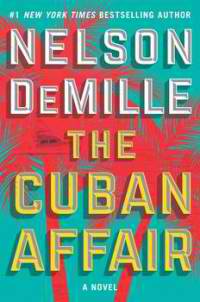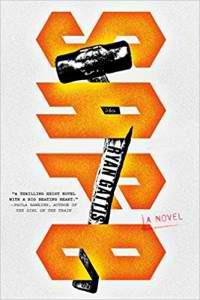The Cuban Affair by Nelson DeMille
 Monday, September 4, 2017 at 9:28AM
Monday, September 4, 2017 at 9:28AM 
Published by Simon & Schuster on September 19, 2017
Daniel Graham “Mac” MacCormick owns a charter boat in Key West. A fellow named Carlos wants to hire Mac to take him to Cuba for a government-sanctioned fishing tournament. There may be more to it than fishing, and while Mac likes to run a clean operation, the offer of $2 million for ten days’ work gets his attention.
The actual mission involves not fishing, but spiriting some of the past out of Cuba and into the United States. To that end, Mac goes to Cuba, accompanied by the lovely Sara Ortega. Of course, they wind up in bed, not only as part of their cover story, but because they enjoy it. Meanwhile, Mac’s first mate, Vietnam vet Jack Colby, keeps Mac’s fishing boat ready for a quick getaway . . . if Mac and Jack can find a way to get to the boat. I can’t say much else about the plot without spoiling the fun, so I will say only that the story takes some unexpected turns and provides the mix of adventure and suspense that Nelson DeMille consistently delivers.
DeMille’s protagonists always have a wry sense of humor. Mac’s pointed remarks about Cuba’s oppressive government would be funny if they weren’t so accurate. Mac is also a typical DeMille protagonist in that he is tough, capable, decent, unselfish, and skeptical. He isn’t politically correct, but he isn’t an in-your-face jerk about it. I don’t mind fictional characters (or real people, for that matter) having opinions that differ from mine, as long as they aren’t haters or just plain stupid, and Mac’s observations — sharp but never mean — might enhance the novel for readers who share his outlook. In any event, the ending is politically astute, regardless of where the reader falls on the political spectrum.
Mac also suffers from raging hormones. The novel’s love story struck me as unlikely, given the speed with which Mac moved from “I want to get laid” to “I love you,” but high-speed romance is standard in a thriller. The love story adds another complication to Mac’s life, particularly when a competing suitor arrives on the scene. That’s all part of the shifting plot that catches the reader off guard, if not the imperturbable Mac.
Apart from entertaining characters, atmosphere is the key to the novel’s success. This is a Cuba that appears to come from personal experience rather than a travel guide.
Despite the danger the characters face as the story moves along, The Cuban Affair is a little more laid back and a little less gripping than DeMille’s John Corey novels, but those novels set a pretty high standard. The Cuban Affair moves quickly and delivers credible action scenes, particularly when things heat up toward the novel’s end. This isn't DeMille's best work, but it's better than most thriller writers manage.
RECOMMENDED



